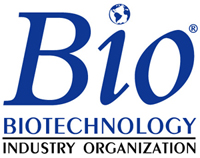By
Donald Zuhn —
Senate Passes Patient
Protection and Affordable Care Act
 On
On
Christmas Eve, the Senate passed the Patient Protection and Affordable Care Act
(H.R. 3590) by a 60-39 vote. Independent Senators Joe Lieberman (I-CT)
and Bernard Sanders (I-VT) joined all 58 Democratic Senators in voting for the
bill. All of the Republican
members of the Senate — with the exception of Senator Jim Bunning (R-KY), who did
not vote — voted against the bill.
The Senate bill, which was officially renamed The Patient Protection and
Affordable Care Act, expanded from 2,074 pages as introduced last month to
2,407 pages. One thing
that did not change in the bill, however, was the section (§ 7002) providing
for an approval pathway for biosimilar biological products. As reported on Patent Docs last month (see
"Follow-on Biologics News Briefs – No. 10"), this
provision would preclude a biosimilar application from being approved
"until the date that is 12 years after the date on which the reference
product was first licensed." In addition, the Senate bill would
offer an additional 6 months of exclusivity for the use of reference products
"in the pediatric population." On Tuesday, a message regarding the Senate's passage of the bill was sent
to the House of Representatives.
Reaction to Senate Health Care Bill
 In
In
a statement
released on Christmas, Biotechnology Industry Organization (BIO) President and
CEO Jim Greenwood declared that the Patient Protection and Affordable Care Act
passed by the Senate "includes many provisions which serve as early
Christmas presents for patients living with debilitating diseases such as
cancer, Multiple Sclerosis, HIV/AIDS and a host of rare diseases." Referring to the biosimilar provision
of the bill, Mr. Greenwood noted that the legislation "establishes, for
the first time ever, a pathway to allow for U.S. Food and Drug Administration
approval of biosimilars, sometimes inaccurately referred to as 'biogenerics.'" He added that as a result of this
provision, "patients with devastating diseases will have increased access
to safe and effective life-saving advanced therapies and can take comfort in
the knowledge that this bill will accelerate the biotechnology sector's drive
toward discovering new treatments, therapies and cures for diseases that have
plagued us for years." Mr.
Greenwood also pledged the industry group's cooperation in working with the
Senate to ensure that "the House provisions pertaining to patent
resolution are included in the final bill."
 One day earlier, Pharmaceutical Research and
One day earlier, Pharmaceutical Research and
Manufacturers of America (PhRMA) Senior Vice President Ken Johnson issued a
statement
applauding the Senate "for taking an important and historic step toward
expanding high-quality, affordable health care coverage and services to tens of
millions of Americans, many of whom are struggling today
financially." While noting
that "considerable work remains to be done in reconciling differences between
the Senate and House bills," Mr. Johnson stated that the PhRMA was "convinced
that comprehensive health care reform, if done in a smart way, will benefit
patients, our economy and the future of our nation."
 In
In
a statement
released on Christmas Eve, Generic Pharmaceutical Association (GPhA) President
and CEO Kathleen Jaeger contended "[t]he bill passed by the Senate,
unfortunately, amounts to a treasure trove to brand drug companies who stand to
make enormous profits from health care reform — putting brand drug profits
over patients." Perhaps anticipating
BIO's reaction to the bill's passage, Ms. Jaeger stated that bill was "no
holiday present to American consumers." She also stated that "[r]eal reform should bend the
pharmaceutical cost curve in the right direction," adding that "as it
stands, brand drug companies are poised to receive gold nuggets in their
stockings, whereas consumers are about to get a handful of coal."
In
response to the Senate's passage of H.R. 3590, the Coalition for a Competitive
Pharmaceutical Market (CCPM) — which has 33 participating members including
Apotex, Hospira, Momenta Pharmaceuticals, Mylan Labs, Ranbaxy Pharmaceuticals,
Teva Pharmaceuticals USA, Watson Pharmaceuticals, and the Generic
Pharmaceutical Association (GPhA) — has begun a campaign on its website
to "[s]how Congress that the gift to brand drug companies isn't all it's
wrapped up to be." As part of
that campaign, the CCPM is asking visitors to its site to call or write the White House to "[a]sk the President to tell Congress to fix health
care reform legislation by putting patients over profits."
Washington
Times Op-Ed
Says Savings Claims Are Inflated
 In
In
an op-ed article appearing in The
Washington Times less than a week before the Senate passed the Patient
Protection and Affordable Care Act,
Roland King, who served as the chief actuary for the Health Care Financing
Administration (now the Centers for Medicare and Medicaid Services) for 16
years, notes that "[a] minority of legislators claim that changing [follow-on
biologics] legislation to allow biosimilar manufacturers to copy another
product as early as 7 years will result in an enormous additional savings to
the government" ("Inflated savings claims: Not a
prescription for a sound policy"). Mr. King,
however, disputes this claim, asserting that "the facts simply do not bear
this out." Noting that
"[a] substantial majority of biologic drugs currently on the market are
already at or near the end of the proposed 12-year protection period," Mr.
King concludes that "lowering the data protection period would result in
minimal additional savings."
In addition, he contends that "the 12-year protection period is
necessary so the legislation does not irreparably harm the uniquely American
biotechnology industry and the future cures it will produce." Mr. King also believes that the
bipartisan support the 12-year period received over the summer in the House
Committee on Energy and Commerce (see
"House Committee Approves Health Care Reform Bill Calling for 12-Year
Exclusivity Period")
and the Senate Health, Education, Labor and Pensions (HELP) Committee (see "Senators Champion 12-Year Data
Exclusivity in Senate")
another reason for retaining the 12-year data exclusivity period.
Pointing
to his "almost 40 years of experience preparing cost estimates for federal
health care programs," Mr. King states that "it's a great deal easier
to project savings than to actually realize them." He contends that "the difficulty
of the manufacture of biosimilar drugs, the number of likely biosimilar
entrants in the market, the number of biologic products near the end of their
patent life over the next decade, and the FDA review process that would be
required to ensure the safety and effectiveness of biosimilar drugs, all lead
to the conclusion that any savings from reducing the years of data protection
would be insignificant."
Admonishing opponents of the 12-year period who use cost savings to
support their position, Mr. King asserts that this argument is "misleading
[and] counter to the public's interest in having biotech companies retain
sufficient incentives to continue investing billions of dollars in the research
and development of vital new medicines." Instead, Mr. King concludes that "[m]oving from 12
years of data protection to seven years would not materially impact the
savings, but would materially impact the incentives for innovator biotechnology
companies to discover the next generation of treatments for such serious
diseases as cancer and Parkinson's."
New
York Times
Reports on Lobbying Efforts Related to Biosimilar Provision of Health Care
Legislation
 In
In
a report in last month's New York Times,
the paper notes that statements by more than a dozen lawmakers added to the official
record of the House debate on health care reform "were ghostwritten, in
whole or in part, by Washington lobbyists working for Genentech" ("In
House, Many Spoke With One Voice: Lobbyists'"). The report also notes that "lobbyists
drafted one statement for Democrats and another for Republicans," and that
these statements were picked up (at least in part) by 22 Republicans and 20
Democrats. According to the Times, e-mail messages that the paper
obtained showed that the statements were based on information supplied by
Genentech employees to lobbyist Matthew Berzok, a lawyer at Ryan, MacKinnon,
Vasapoli & Berzok, who authored the statements, which were then distributed
by lobbyists at another law firm (Sonnenschein Nath & Rosenthal). The Times report notes that the
Democratic statement "emphasized the bill's potential to create jobs in
health care, health information technology and clinical research on new
drugs," and that the Republican statement "opposed the bill, but
praised a provision that would give the Food and Drug Administration the
authority to approve generic versions of expensive biotechnology drugs, along
the lines favored by brand-name companies like Genentech."
In
an editorial appearing in the Times
two days later, the paper opines that "[i]t is disturbing that the [biotech]
industry was able to so easily shape the official record to its liking"
("Puppets in Congress"). While acknowledging that "[t]he comforting
news is that none of the ghostwritten material sought to change the contents of
the bill, which was not open to much revision during the debate," the Times argues that it is "disturbing
that so many members of Congress were willing to parrot the industry talking
points." The paper also
characterizes the House bill's 12-year data exclusivity provision as "a
generous period by anyone's standards." (Our earlier series regarding the many papers, letters, and
statements outlining positions taken by various players in the follow-on
biologics data exclusivity debate contradicts the Times' characterization; see
"Follow-on Biologics Data Exclusivity Debate Scorecard – Part III".)
Wall
Street Journal
Op-Ed Warns That Europe May Take Biologic Lead
 In
In
an op-ed appearing in The Wall Street
Journal last month, a former member of the European Parliament argues that
"European researchers are on the cusp of overtaking their American
counterparts in biotechnology innovation, especially when it comes to the
development of cutting-edge medicines known as 'biologics'" ("Washington's Gift to European Biotech"). According to the author, Della Vedova, a
member of the Italian Chamber of Deputies, the European biotech industry has
closed the gap in private financing and number of dedicated biotechnology firms
over the past five years. Mr.
Vedova notes that "just as the European biotech industry's substantial
investments in research and development — about a third of revenues in recent
years — is beginning to pay off, U.S. policy makers are considering
legislation that would hamstring biotech research in their own
country." In particular, Mr.
Vedova refers to "[a] bill currently before the U.S. Congress [that] would
allow drug companies to make knock-off versions of biologics much sooner than
in Europe."
While
Mr. Vedova is mistaken as to the actions of Congress since July — House and
Senate committees each passed 12-year data exclusivity provisions that are
longer than Europe's 10-year period, and both the House and Senate have now
passed health care bills providing for 12 years of exclusivity — his point
regarding the importance of longer exclusivity periods is well taken. For example, Mr. Vedova contends that
"[w]ithout a significant exclusivity period, . . . biotech companies won't
have enough time to recoup the huge sums they have invested." With regard to Europe's 10-year period,
Mr. Vedova notes that "[t]he EU adopted this standard in 2003 to increase
the competitiveness of the continent's pharmaceutical and biotech firms,"
adding that "it has paid off, as the recent success of European firms
illustrates." Mr. Vedova
concludes that a shorter exclusivity period in the U.S. "would mean more
investment dollars, more jobs, and more research facilities on this side of the
Atlantic," and would constitute "a historic shift" for U.S.
biotech researchers, who have "[f]or much of the past few decades . . . left
the Europeans in the dust."

Leave a comment